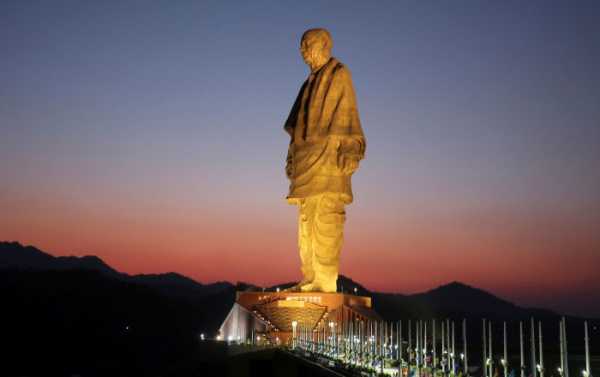
New Delhi (Sputnik): Signals emanating from Prime Minister Naredra Modi’s marathon meetings with state chiefs, bureaucrats and political leaders in the last few days suggest that the nationwide lockdown will be extended well beyond 14 April.
While announcing a nationwide lockdown on 24 March, Indian Prime Minister Narendra Modi admitted that there will be “an unimaginable economic cost of the lockdown but the immediate priority is to save lives from COVID-19”.
After witnessing an unprecedented lockdown which may be extended until the first week in May, industries have demanded a slew of measures including financial packages worth around $400 billion to minimise short-term losses due to COVID-19. Exporters claim that around 15 million jobs would be lost while the United Nations estimated that around 400 million workers in India will slip into poverty due to the pandemic.
Indian economist Dr Sudhanshu Kumar of Centre for Economic Policy and Public Finance, Patna, has suggested that there are five steps that the government must take in order for India to remain relevant in the post-coronavirus world order.
Measures to Stop Reverse Migration of Workers
According to Kumar, the current lockdown in India has led to a situation where both capital and labour are forced to sit idle. The developments in the next few days will be a tough policy choice between life and livelihood.
It is evident from the way policy decisions have evolved that the opening up of the lockdown will be a gradual process. However, any situation will need a way to manage a reverse migration. The mass movement of migrants at the beginning of the lockdown could be stopped in a few days by providing temporary arrangements for the migrants along with strict measures to contain the movement of people. But, they will start moving back to their places of residences as soon as there is an opportunity to do so. This is mostly due to psychological reasons.
There is a need to provide confidence to workers and small businesses in the unorganised sector that brings them back to their workplace and allows them to re-engage in their respective economic activities.
Availability of Capital at Low Cost
The absence of economic activity for a long time creates a scenario where capital needs to be mobilised and infused with special effort. Also, idle capital has cost for businesses as repayment – and even the repayment of interest – becomes difficult.
The government along with the Reserve Bank of India has taken steps in this direction which seems promising. As the situation improves on the health front, the availability of capital at a lower cost is the primary step for rebooting the economy.
Protect the Businesses from the Penal Provisions of the Legislation
According to the economist, there is a need to protect businesses from the legal provisions that penalise them for failure in their business.
The damages to the businesses are going to be more than from what it would have been due to the bad performance of a particular sector. Blanket damage to the economy deserves sympathetic treatment to help the businesses restart their activities.
In this scenario, there is a need to provide support in such a way that the inability to generate value from capital in is not seen as a crime and therefore they are not penalised as they would have been in normal circumstances.
Limited Fiscal Space, Think Beyond Financial Package from the Government
Unfortunately, the current crisis has come at a time when the economy was already facing slowdown.
Revenue collection from both direct and indirect taxes have been much lower than the Indian government’s target in the last financial year.
The management of the health crisis itself will consume much of the fiscal space. This will lead to an increased fiscal deficit for both the central and the state governments. Therefore, there is a little room for the governments to provide a large scale capital infusion to the economy.
Also, the Goods and Services Tax collection has been much lower than the target. This puts a constraint on the government in using taxes to support businesses. Therefore, what remains is that government helps in making available the capital at a cost as low as possible.
Technology is Key in Post COVID-19 World Order
The new world order post the current crisis will be completely different, for businesses and trade, from the era of globalisation.
It is technology that utilises the available resources, namely, labour and capital, for production in the economy. The crisis shows the way only if the outcomes of the situation is properly utilised for future growth. In the medium to long run, it is technological development that will provide a new mechanism to employ abundant labour along with capital in generating output and providing meaningful employment.
Kumar says, “we can understand this from the recent global demand for medicines from India to fight the health crisis. A country which has access to technology along with labour and capital will be relevant in the new world order”.
The views and opinions expressed in the article do not necessarily reflect those of Sputnik.
Sourse: sputniknews.com






